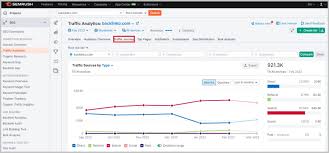Are you struggling to find the right keywords to optimize your website and improve your search engine rankings? Look no further than an SEO keyword finder tool. This powerful tool can be a game-changer for your online presence, helping you identify the most relevant and high-performing keywords to boost your website’s visibility.
What is an SEO Keyword Finder?
An SEO keyword finder is a tool designed to assist website owners, marketers, and content creators in discovering the best keywords for their online content. It helps you understand what words or phrases people are using when searching for information related to your industry or niche.
Why is Keyword Research Important?
Keyword research plays a vital role in any successful SEO strategy. By identifying and incorporating the right keywords into your website’s content, you can increase your chances of ranking higher in search engine results pages (SERPs). This, in turn, drives more organic traffic to your site and improves its overall visibility.
How Does an SEO Keyword Finder Work?
An SEO keyword finder employs various techniques and algorithms to generate a list of relevant keywords based on a specific topic or seed keyword provided by the user. It takes into account factors such as search volume, competition level, and keyword difficulty to determine which keywords are most valuable for targeting.
Benefits of Using an SEO Keyword Finder
Improved Search Engine Rankings: By targeting the right keywords, you can optimize your website’s content and increase its chances of ranking higher in search results.
Informed Content Creation: Keyword research helps you understand what topics are popular among your target audience. This knowledge allows you to create relevant and engaging content that resonates with them.
Competitive Advantage: Analyzing keywords used by your competitors can help you identify gaps and opportunities in the market. By leveraging this information, you can stay ahead of the competition.
Effective Ad Campaigns: For businesses running pay-per-click (PPC) advertising campaigns, an SEO keyword finder helps in selecting the right keywords to target for maximum ROI.
Tips for Using an SEO Keyword Finder
Be Specific: Instead of targeting broad and highly competitive keywords, focus on long-tail keywords that are more specific to your niche. These often have less competition and higher conversion rates.
Analyze Metrics: Pay attention to metrics such as search volume, competition level, and keyword difficulty provided by the SEO keyword finder. This data will help you prioritize and choose the most valuable keywords.
Stay Updated: Keep up with evolving trends and changes in search behavior to ensure your keyword strategy remains relevant and effective over time.
In Conclusion
An SEO keyword finder is a valuable tool for anyone looking to improve their website’s visibility and drive organic traffic. By conducting thorough keyword research, you can optimize your website’s content and stay ahead of the competition in today’s digital landscape.
If you’re ready to take your SEO strategy to the next level, consider using an SEO keyword finder tool today!
5 Essential Tips for Mastering SEO with an Effective Keyword Finder Strategy
- Research popular search terms related to your topic using keyword research tools.
- Focus on long-tail keywords that are more specific and have less competition.
- Analyze your competitors’ websites to identify the keywords they are targeting.
- Use relevant keywords naturally in your website content, including headings, titles, and meta tags.
- Regularly monitor and update your keyword strategy based on changes in search trends and user behavior.
Research popular search terms related to your topic using keyword research tools.
To enhance your SEO strategy, it is crucial to research popular search terms related to your topic using keyword research tools. These tools provide valuable insights into the keywords that people are actively searching for in relation to your industry or niche. By identifying these popular search terms, you can optimize your website’s content and ensure that you are targeting the right keywords to attract organic traffic. Keyword research tools help you understand the search volume, competition level, and keyword difficulty associated with each term, allowing you to make informed decisions when selecting the most effective keywords for your website. Incorporating these relevant keywords into your content can significantly improve your search engine rankings and increase the visibility of your website among your target audience.
Focus on long-tail keywords that are more specific and have less competition.
When using an SEO keyword finder, it is crucial to focus on long-tail keywords that are more specific and have less competition. Unlike broad keywords, long-tail keywords consist of three or more words and target a narrower audience. By incorporating these specific phrases into your content, you can attract highly relevant traffic that is more likely to convert. Additionally, since long-tail keywords have less competition, you have a higher chance of ranking well in search engine results pages. This strategy allows you to optimize your website for targeted searches and gain a competitive edge in your industry.
Analyze your competitors’ websites to identify the keywords they are targeting.
Analyzing your competitors’ websites to identify the keywords they are targeting can provide valuable insights for your SEO strategy. By understanding which keywords your competitors are focusing on, you can uncover potential opportunities and gaps in the market. This information allows you to fine-tune your own keyword selection, ensuring that you are targeting relevant terms and differentiating yourself from the competition. By leveraging competitor analysis, you can gain a competitive edge and optimize your website’s content to attract more organic traffic and improve search engine rankings.
Use relevant keywords naturally in your website content, including headings, titles, and meta tags.
To maximize the effectiveness of an SEO keyword finder, it is crucial to incorporate the identified keywords naturally into your website content. This includes strategically placing them in headings, titles, and meta tags. By doing so, search engines can better understand the relevance of your content to users’ search queries. However, it’s important to maintain a balance and avoid keyword stuffing, as search engines prioritize high-quality and user-friendly content. By seamlessly integrating relevant keywords into your website’s structure and content, you can improve your chances of ranking higher in search engine results and attracting organic traffic.
Regularly monitor and update your keyword strategy based on changes in search trends and user behavior.
To maximize the effectiveness of your SEO keyword finder, it is crucial to regularly monitor and update your keyword strategy in response to changes in search trends and user behavior. Search patterns and user preferences can evolve over time, so staying up-to-date with the latest trends ensures that you are targeting the most relevant keywords for your audience. By continuously analyzing data and adjusting your keyword strategy accordingly, you can maintain a competitive edge and ensure that your website remains visible and accessible to potential visitors.




